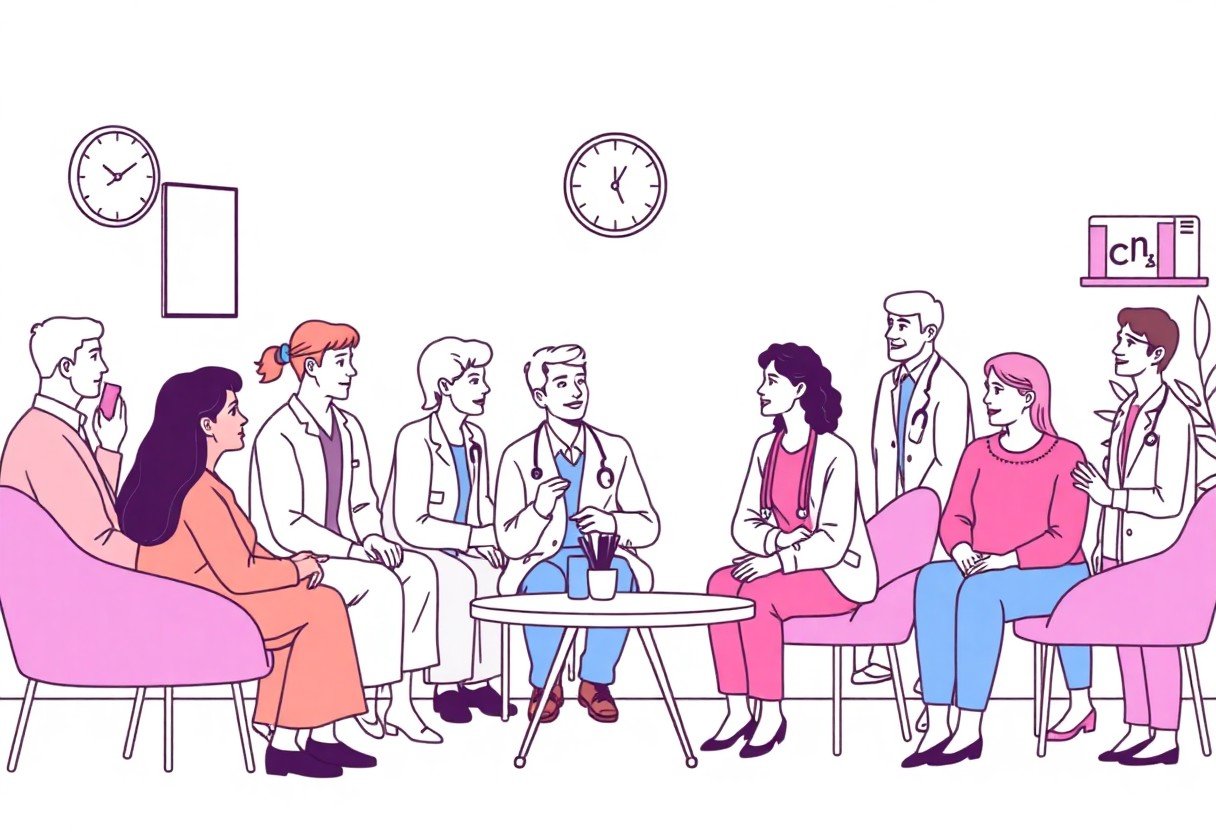Experiences with the NHS Mental Health System
Experiences with the NHS Mental Health System: You may find navigating the NHS Mental Health System to be a complex journey, filled with both challenges and triumphs. Understanding your rights and the services available can empower you to effectively seek help. From initial assessments to treatment options, your experience can vary significantly based on numerous factors, including location and specific mental health needs. While waiting times can often be frustrating, many patients report life-changing support that fosters recovery and well-being. In this post, we will probe into key aspects of the system to guide you through your own experiences.
Key Takeaways:
- Access to mental health services can vary significantly, often depending on geographic location and resource availability.
- Long wait times for initial assessments and treatments can be a common frustration for individuals seeking help.
- Experiences with healthcare professionals can greatly impact patient outcomes, highlighting the importance of empathetic and supportive interactions.
- There is a growing emphasis on integrating mental health support within primary care settings to improve accessibility.
- Patients often benefit from advocacy and support from family members or peer services in navigating the mental health system.
Overview of the NHS Mental Health System
While the NHS Mental Health System offers a range of services aimed at supporting you, it can be complex and often varies by location. Understanding the structure, how to access services, and what types of support are available is vital to navigating your mental health journey successfully. The system is designed to address both acute needs and long-term mental health challenges, but experiences can differ greatly depending on your circumstances.
Structure and Hierarchy
Before you engage with the NHS Mental Health System, it’s important to grasp its structure and hierarchy. The system consists of various tiers, from primary care providers like GPs to secondary services such as community mental health teams and specialist hospitals. Each level has specific roles, and understanding who to approach can streamline your access to appropriate care.
Accessing Mental Health Services
System navigation can feel overwhelming, especially when seeking mental health services. While there are multiple pathways to receiving support, the key is knowing how to initiate the process. Engaging with your GP is usually your first step, as they can refer you to specialised services that meet your needs.
Understanding how to access mental health services in the NHS is important for getting the support you deserve. Your journey often starts with a visit to your GP, who will assess your situation and provide the relevant referrals. Depending on your needs, you might be directed to local community mental health teams or offered therapy services. Be aware that waiting times for these services can vary significantly, and some areas may offer self-referral options for specific interventions like talking therapies. By taking proactive steps and advocating for yourself, you can enhance your access to vital mental health resources.
Patient Experiences
You may find that your interactions with the NHS mental health system vary greatly depending on your unique circumstances and the professionals you encounter. Many patients have shared experiences that illuminate the broad range of support available, as well as the efforts made by dedicated staff to address mental health needs in challenging environments.
Positive Outcomes
For numerous individuals, the NHS mental health system offers life-changing support through therapy, medication, and community services, enabling you to manage your mental health more effectively and achieve positive changes in your life.
Challenges Faced
To navigate the NHS mental health system, you may encounter barriers such as long waiting times, varying levels of care, and occasional difficulty in finding the right services for your specific needs.
Outcomes of these challenges can lead to frustration and feelings of hopelessness. You might face extended waiting periods that delay your access to treatment, making it harder to cope with your mental health issues. The inconsistency in care quality and a lack of tailored services can exacerbate feelings of isolation and confusion. Moreover, the stigma associated with mental health can leave you feeling misunderstood or hesitant to seek help, negatively impacting your overall well-being. By sharing these experiences, you can contribute to improving awareness and understanding of the system’s strengths and weaknesses.
Types of Services Offered
Keep in mind that the NHS Mental Health System provides a variety of services tailored to meet different needs. These include:
| 1. Psychiatric assessments |
| 2. Therapy sessions |
| 3. Support groups |
| 4. Medication management |
| 5. Crisis intervention |
This range ensures that you receive the appropriate support for your mental health needs.
Inpatient vs. Outpatient Care
About the two primary types of care, inpatient and outpatient, each serves specific situations. Inpatient care is for those needing intensive support in a hospital setting, while outpatient care allows you to receive treatment while living at home, typically involving therapy sessions and medication management. Both are important in the NHS Mental Health System.
Community Mental Health Services
Behind the scenes, Community Mental Health Services offer vital support designed to assist you in managing your mental health effectively. These services focus on providing care within the community rather than in hospital settings, allowing you to access help closer to home.
Further, Community Mental Health Services encompasses various offerings, including crisis teams, community support workers, and local therapy clinics. These services are especially beneficial as they aim to provide ongoing support and empower individuals to manage their mental health challenges. By ensuring access to a network of professionals, you’re less likely to feel isolated, creating a community-focused approach that ultimately promotes recovery and well-being.

The Role of Mental Health Professionals
Not every person struggling with mental health issues has the same experience with the NHS. The role of mental health professionals is vital in navigating your journey through treatment and recovery. They work collaboratively to provide support, identify needs, and implement personalised care plans that address your situation and challenges.
Psychiatrists and Psychologists
About psychiatrists and psychologists: they are key figures in the NHS mental health system. Psychiatrists focus on diagnosis and treatment through medication, while psychologists primarily use therapy and counselling techniques. Both roles are crucial for tailored approaches, ensuring you receive the right support based on your individual needs.
Support Staff and Community Workers
Support staff and community workers play a significant role in your experience within the NHS mental health system. They assist in the practical side of care, helping you access resources, navigate services, and provide ongoing support in a more personal, accessible setting.
Community workers are instrumental in connecting you with local services and resources that can enhance your recovery journey. They work closely with you to address barriers to care, ensuring that you feel supported in your environment. The combination of these roles allows for a more holistic approach to your mental health and can often lead to improved outcomes as you build relationships and trust within the community.
Policy and Reform
Many people have witnessed firsthand the evolution of the NHS Mental Health System, shaped significantly by ongoing policy and reform initiatives. These changes aim to enhance service delivery, increase funding, and promote holistic approaches to mental health care, ultimately striving for a system that prioritises patient well-being and community support.
Recent Changes in Mental Health Policy
Above all, recent changes in mental health policy reflect a shift towards integrated care models and increased accessibility for patients. The government’s commitment to mental health funding has led to the introduction of new frameworks that emphasise early intervention and community-based support, ensuring that individuals have access to vital resources when they need them most.
Impact of Policy on Patient Care
Against this backdrop, the impact of policy on patient care is multi-faceted. These changes can lead to improvements in waiting times and treatment options, enhancing the overall experience for individuals seeking assistance. However, you may also encounter challenges related to the implementation of new systems, which can sometimes create inconsistencies in care quality across different regions.
Due to these policies, you may find that access to mental health resources has improved, allowing for a more timely response to your needs. The focus on integrated care facilitates cooperation among healthcare professionals, which can lead to better treatment outcomes. However, it’s important to note that disparities in available services can exist, largely influenced by geographical and socioeconomic factors. This inconsistency may result in situations where you experience limited options and longer waiting periods than intended, ultimately affecting the quality of care you receive.
Coping with Stigma
Unlike physical ailments, mental health issues often carry a heavier burden of stigma. You may find that this societal perception can lead to feelings of isolation and shame. Challenging these misconceptions is a crucial step in embracing your mental well-being and seeking the help you deserve.
Public Perception of Mental Health
Before addressing your own mental health challenges, it’s important to understand that public perception often remains skewed. Many people still associate mental health issues with weakness or instability, which can discourage you from speaking openly about your experiences or seeking the support you need.
Initiatives to Reduce Stigma
Mental health organisations and advocacy groups actively work to change the narrative surrounding mental health. They focus on education and awareness campaigns designed to foster understanding and acceptance, allowing you to feel more comfortable discussing your struggles and seeking treatment.
But despite these efforts, stigma persists in various forms. You may encounter negative portrayals in the media or hear misinformed comments that reinforce stereotypes. However, public initiatives such as community workshops and social media campaigns aim to challenge these negative perceptions. Engaging with these resources can help build a more supportive environment where you feel empowered to share your story. By participating in or promoting these initiatives, you contribute to a growing movement that seeks to eliminate stigma and promote understanding of mental health challenges.
To wrap up
Considering all points, your experiences with the NHS Mental Health System can significantly shape your understanding of mental health care in the UK. You may find that the system offers a range of resources and support options, but challenges such as long waiting times or varying levels of service quality might arise. It’s important for you to advocate for your needs and explore all available avenues to ensure you receive the best possible care tailored to your situation. Your voice and experiences matter in this ongoing conversation about mental health services.
FAQ
Q: What should I expect during my first appointment with a mental health professional in the NHS?
A: During your first appointment, you can expect a thorough assessment of your mental health. This typically includes a discussion about your current symptoms, medical history, and any relevant personal circumstances. The mental health professional may conduct various questionnaires to better understand your situation. It’s important to be honest and open during this time to help guide your care. You may also discuss potential treatment options, which could include therapy, medication, or support groups.
Q: How long does it typically take to receive treatment after seeking help from the NHS Mental Health System?
A: The waiting times for treatment can vary significantly depending on the type of service you need and the demand in your area. Generally, you might receive an initial assessment within a few weeks, but for ongoing treatment, such as therapy sessions or specialist services, it could take longer, sometimes several months. The NHS aims to provide timely care, but it’s important to stay in communication with your healthcare provider and seek support if you feel your needs are not being met.
Q: What types of mental health services are available through the NHS?
A: The NHS offers a variety of mental health services that cater to different needs. These include primary care services provided by your GP, community mental health teams, crisis services, talking therapies such as Cognitive Behavioural Therapy (CBT), and inpatient care for those who require more intensive treatment. Additionally, there are specialised services for conditions like eating disorders, substance misuse, and youth mental health. Access to these services can depend on severity and specific needs.
Q: Can I choose my mental health professional within the NHS system?
A: You may have some flexibility in choosing a mental health professional, particularly if you want to see a specialist or therapist in a community mental health team. While your GP will usually refer you to appropriate services, you can express your preferences regarding the professionals you wish to see. However, availability may vary depending on the location and resources of your local NHS trust.
Q: What should I do if I feel my concerns are not taken seriously by NHS mental health staff?
A: If you feel that your concerns are not being acknowledged or taken seriously, it is important to voice your feelings. Start by discussing your concerns directly with the mental health professional you are seeing. If you feel uncomfortable doing this or do not see improvement, you can request to speak to a supervisor or manager within the service. Additionally, you have the right to seek a second opinion or request a referral to another specialist. Documenting your experiences may also help in these discussions and ensure your voice is heard.






